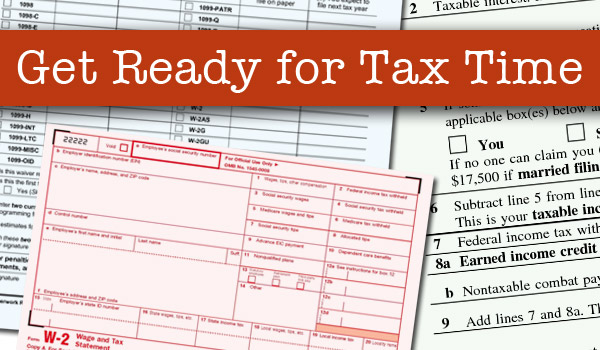Get Ready for Tax Time
Cary, NC — Whether you file individually or you own a company and need to file for your business, Tax Time is around the corner. Here are some tips from Smith & Smith CPA here in Cary to help you get ready.
Tax Time – For Individuals
Statements
When you file for yourself, or you and your spouse, there are several things you need to have ready.
Look for statements that will be coming in the mail between now and the end of February. Put together a folder where you can gather these papers as they come in the mail, so that you aren’t scrambling when its time to do your return.
Long-Term Capital Gains and Dividends
- For filing your 2013 taxes, taxpayers in the lower tax brackets (10 and 15 percent brackets), the rate is 0 percent.
- For taxpayers in the four middle tax brackets, 25, 28, 33, and 35 percent brackets respectively, the rate is 15 percent.
- For an individual taxpayer in the highest tax bracket, 39.6 percent, whose income is at or above $406,750 ($457,600 married filing jointly), the rate for both capital gains and dividends is capped at 20 percent.
Medicare Taxes and Higher Wage Earners
The additional 0.9 percent Medicare tax on wages above $200,000 for individuals ($250,000 married filing jointly), which became effective last year, in 2013, remains in effect for 2014.
In addition, there’s the Medicare tax of 3.8 percent on investment (unearned) income for single taxpayers with modified adjusted gross income (AGI) more than $200,000 ($250,000 joint filers). Investment income includes dividends, interest, rents, royalties, gains from the disposition of property, and certain passive activity income. Estates, trusts and self-employed individuals are all liable for the new tax.
Tax Time – Business Owners
Centralizing Your Income and Expenses
The goal is to keep things SIMPLE.
Using your business bank account as the nucleus of all your business transactions allows you not to worry about whether or not your income/expenses are being included/deducted.
- Deposit all sales (yes, even cash).
- Run ALL business expenses through your bank account or a business charge card.
The Benefits:
This will provide you with a quick and consistent audit trail of expenses for your business. With all of your income and expense flowing through your business accounts, you can be assured that your CPA will capture all sales and expenses during the reconciliation process before they compile your monthly/quarterly financial statements. It is extremely important not to commingle your business and personal funds. When setting-up your business account with the bank, we recommend you verify a month end cut-off and request check images with your statement.
Checking Your Bottom Line
Now that you understand how to organize your business transactions, let’s talk about the bottom line. Having a big profit is great; however, it could cause an unexpected tax exposure that would need your attention. It’s important that you stay on top of tax issues as your business is growing. I recommend reviewing your profit and loss with your CPA on a regular basis to avoid a tax nightmare. Understanding your financial statements allows you to make educated decisions related to tax and accounting.
Keep a Mileage Log
One of the biggest deductions for businesses can be the auto expense. Whether or not your vehicle is a business asset, you need to keep a mileage log if you plan on deducting auto expenses.
The auto expense deduction seems easy on the surface; you either use the standard mileage rate (currently at $.565/mile scheduled to decrease to $.56/mile in 2014) or you itemize (allocate the total auto expenses as it relates to your percentage business use).
Once you determine the appropriate convention for a vehicle, you must continue using that convention for the remaining business life (in other words no switching back and forth). Both conventions require a mileage log.
Using a Professional
Never underestimate the knowledge and importance of a professional. Perhaps one of the most beneficial services that a CPA can provide is simply talking things over. It is satisfying to know that someone else, who is discreet and knowledgeable, knows what is going on in your business. Develop a relationship with someone you trust, and that long term relationship will alleviate headaches throughout the year, not just in April. You will feel prepared and in control. Isn’t that worth the We work hard developing a long-standing relationship with our clients. They find comfort in knowing they have a professional that will keep them on task with tax and accounting issues.
———————————————————————————————————————-
Story by Blake Smith, CPA, of Smith & Smith at 1150 Executive Circle in Cary.



